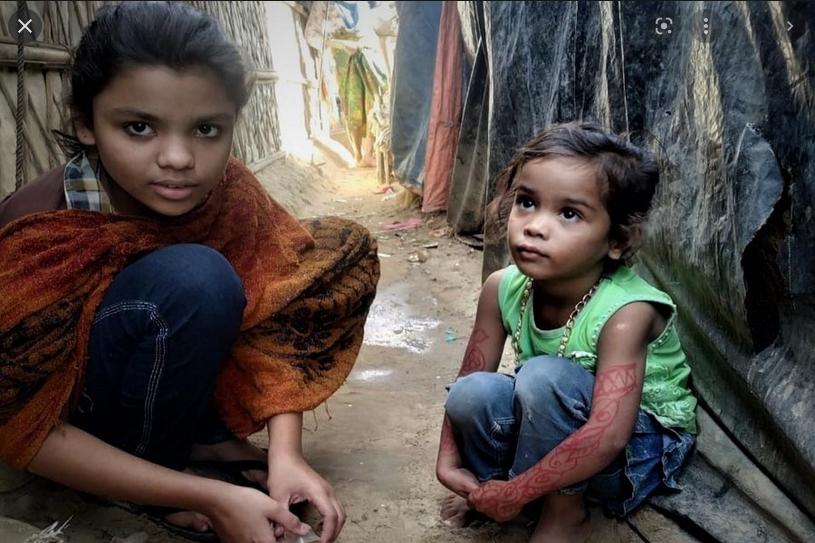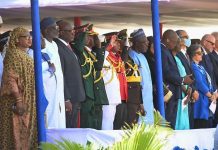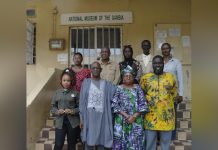Africa-Press – Gambia. Finally, it is encouraging to see that there has been a slight change consistent with democratic norms, good governance and culpability regarding criminal actions that have been undertaken against the Rohingya population of Myanmar’s Rakhine State by the Myanmar armed forces. This has led to thousands of deaths within this ethnic minority community and also to their eventual effort to find sanctuary and safety by crossing into Bangladesh– their neighbouring country. Myanmar’s crackdown on the Muslim minority group, starting in 2017, caused more than 25,000 deaths and nearly a million people displaced.
For the first time the United States has stepped forward and acknowledged that genocide took place against the Rohingya population. On March 21, 2022, US Secretary of State Blinken has formally indicated that genocide took place for the eighth time in the world when the Myanmar military committed the crime against humanity, against the Rohingya community in Myanmar. This was done through setting fire on Rohingya villages, killing, rape, torture, and other horrific abuses. The attack on the Rohingyas was widespread and systematic, which is crucial for reaching a determination of crime against humanity. Blinken has observed that available evidence also points to a clear intent behind these mass atrocities – the intent to destroy the Rohingya minority, in whole or in part. That intent has been corroborated by the accounts of soldiers who took part in the operation and later defected, such as one who said he was told by his commanding officer to, and I quote, “shoot at every sight of a person,” end quote – burn villages, rape and kill women, orders that he and his unit carried out. Intent has also been evident in the racial slurs shouted by members of the military as they launched widespread attacks on mosques that included desecration of the Muslim holy book, the Koran. It has also been mentioned that one needs to recognise that for decades the Myanmar military has been committing killings, rape, and other atrocities against members of other ethnic and religious minority groups, which are also well documented.
Consequently, one needs to understand that efforts undertaken by Gambia and the OIC, supported by a few other countries pertaining to receiving justice for the abused Rohingyas, assumed particular significance from the fact that the matter is now lying with the International Court of Justice (ICJ)– the principal judicial organ of the United Nations. It was established by the United Nations Charter in June 1945 and began its activities in April 1946. The Court is composed of 15 judges elected for a nine-year term by the General Assembly and the Security Council of the United Nations. The seat of the Court is at the Peace Palace in The Hague (Netherlands). The Court has a twofold role: first, to settle, in accordance with international law, through judgments which have binding force and are without appeal for the parties concerned, legal disputes submitted to it by States; and, second, to give advisory opinions on legal questions referred to it by duly authorised United Nations organs and agencies of the system.Finally, it is encouraging to see that there has been a slight change consistent with democratic norms, good governance and culpability regarding criminal actions that have been undertaken against the Rohingya population of Myanmar’s Rakhine State by the Myanmar armed forces. This has led to thousands of deaths within this ethnic minority community and also to their eventual effort to find sanctuary and safety by crossing into Bangladesh– their neighbouring country. Myanmar’s crackdown on the Muslim minority group, starting in 2017, caused more than 25,000 deaths and nearly a million people displaced.
For the first time the United States has stepped forward and acknowledged that genocide took place against the Rohingya population. On March 21, 2022, US Secretary of State Blinken has formally indicated that genocide took place for the eighth time in the world when the Myanmar military committed the crime against humanity, against the Rohingya community in Myanmar. This was done through setting fire on Rohingya villages, killing, rape, torture, and other horrific abuses. The attack on the Rohingyas was widespread and systematic, which is crucial for reaching a determination of crime against humanity. Blinken has observed that available evidence also points to a clear intent behind these mass atrocities – the intent to destroy the Rohingya minority, in whole or in part. That intent has been corroborated by the accounts of soldiers who took part in the operation and later defected, such as one who said he was told by his commanding officer to, and I quote, “shoot at every sight of a person,” end quote – burn villages, rape and kill women, orders that he and his unit carried out. Intent has also been evident in the racial slurs shouted by members of the military as they launched widespread attacks on mosques that included desecration of the Muslim holy book, the Koran. It has also been mentioned that one needs to recognise that for decades the Myanmar military has been committing killings, rape, and other atrocities against members of other ethnic and religious minority groups, which are also well documented.
Consequently, one needs to understand that efforts undertaken by Gambia and the OIC, supported by a few other countries pertaining to receiving justice for the abused Rohingyas, assumed particular significance from the fact that the matter is now lying with the International Court of Justice (ICJ)– the principal judicial organ of the United Nations. It was established by the United Nations Charter in June 1945 and began its activities in April 1946. The Court is composed of 15 judges elected for a nine-year term by the General Assembly and the Security Council of the United Nations. The seat of the Court is at the Peace Palace in The Hague (Netherlands). The Court has a twofold role: first, to settle, in accordance with international law, through judgments which have binding force and are without appeal for the parties concerned, legal disputes submitted to it by States; and, second, to give advisory opinions on legal questions referred to it by duly authorised United Nations organs and agencies of the system.
For More News And Analysis About Gambia Follow Africa-Press






